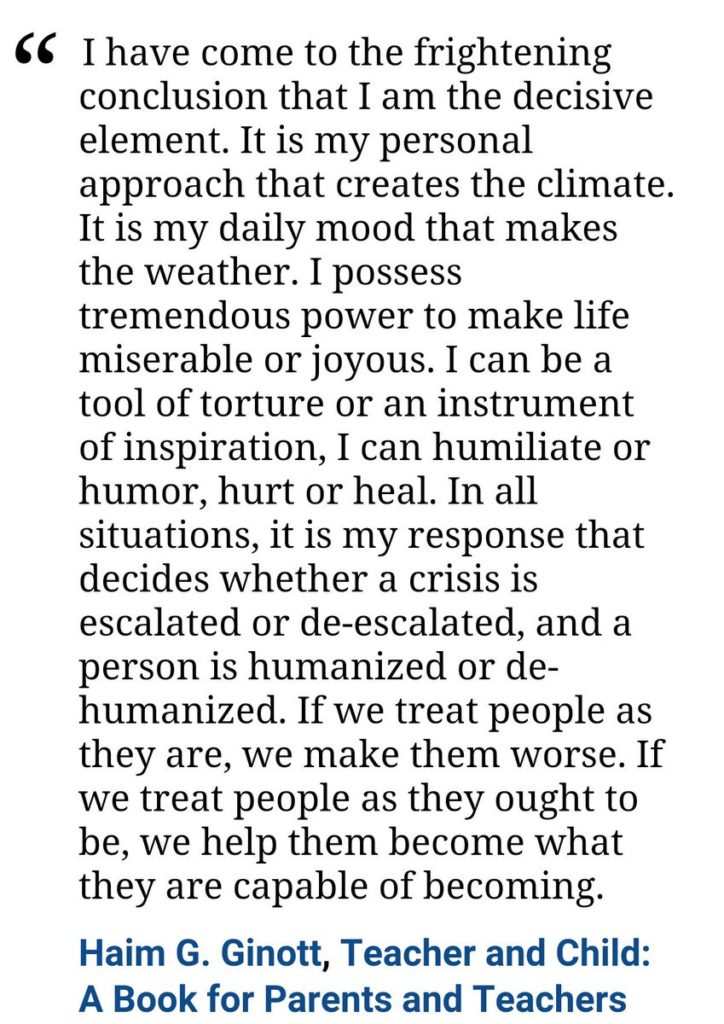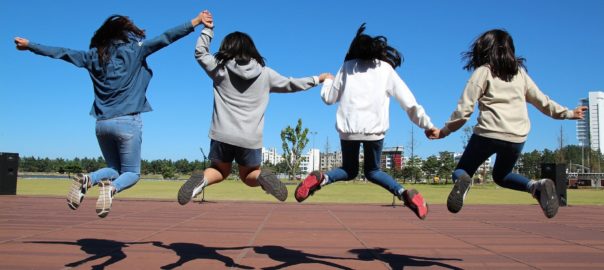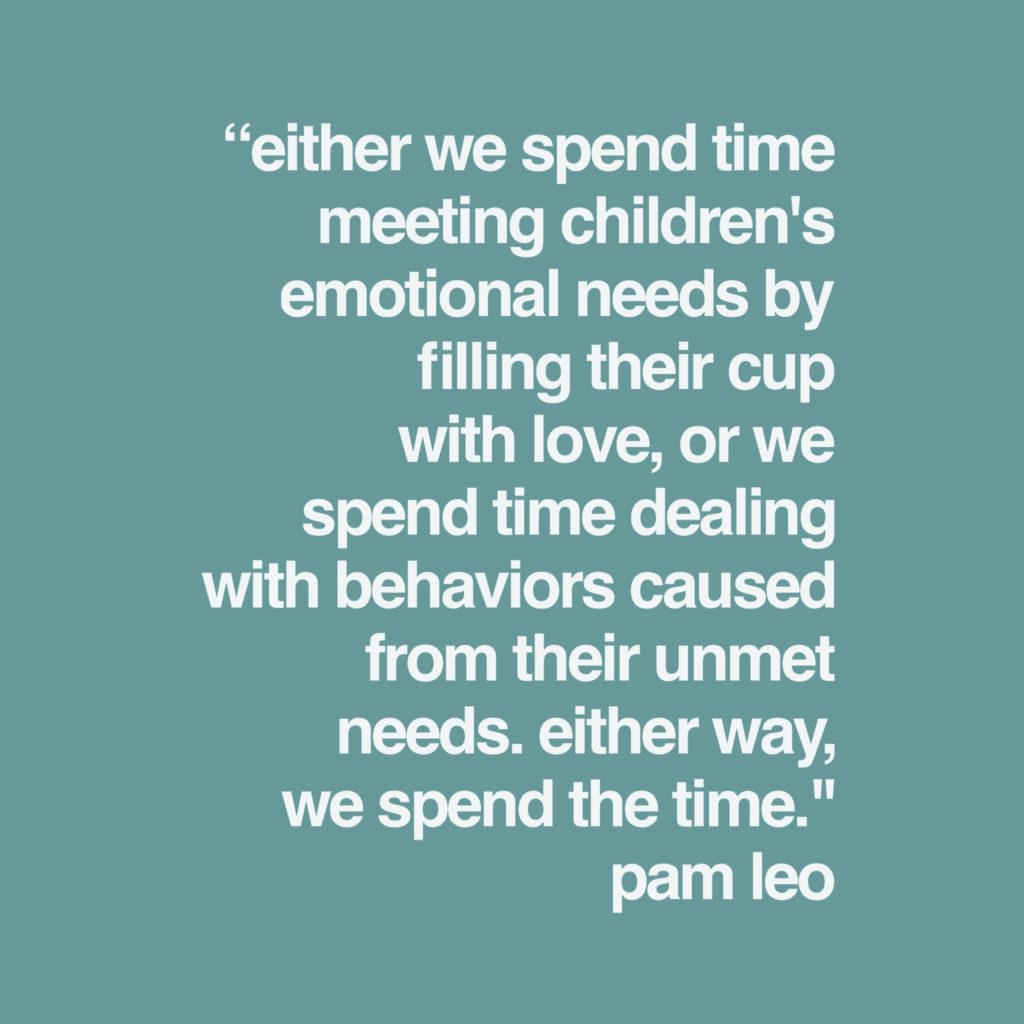“It is not important that my students like me. It is important that they respect me.” In 1995, when I went on my first interview for a teaching job, this was an answer I was instructed to give during my credential program. After decades in the classroom, and now two years in administration, I can honestly say how absurd that statement is and frankly, a load of crap. Students absolutely need to like a teacher, but more importantly feel loved in return. Otherwise, minimal learning will happen.

My oldest just graduated from high school. Yesterday, we were sitting around chatting and I asked her who her favorite teachers had been through the years. For each she mentioned, I followed up by asking her why. Overwhelmingly, her answers included words like “learned a lot in that class.” But she then continued to include ways the teacher showed kindness, understanding and created an environment of fun. When I ask students at my school the same questions, I get similar answers. Of course the ones sitting in my office because of an issue in class spill the opposite story. I can’t tell you how many times troubled students will say, “The teacher doesn’t like me.” While this can be unpacked a million ways, the truth is, this child does not have a positive relationship with the teacher. The teacher is not solely to blame, but as educators we at least need to seek out the reasons why.
How often do we have students who come to us broken? Too often. I recently read What Happened to You?: Conversations on Trauma, Resilience, and Healing by Oprah Winfrey and Bruce D. Perry. Dr. Perry mentions it is estimated that anywhere from 30%-50% of children in the public school system have significant early trauma. Many students have never learned how to regulate themselves. I’m sure every teacher can picture a student like this from memory. We have tried so hard to get this student to do their work and not interfere with the learning of others. Unfortunately, we fail over and over. This student needs far more than the classroom teacher who gently encourages. This student needs a village, a community.
Now I am not going to spend days (because I could) explaining every small nugget I learned from this book. I will simply point out one– we as educators have an important job to do in building a community for all children. Dr. Perry emphasizes that to build resilience from trauma or even social isolation (which we have seen this last year), students need a group of people who help regulate them. They need friends. They need adult support. They need a community where they feel they belong. They need teachers who care about them. This is what we need to do the minute every student steps foot on our campus this fall: build a supportive community.
As educators we know this. We do. But this coming school year the focus will likely be dealing with the “learning loss” of the COVID 19 Pandemic. We might feel overwhelmed to jump right into math and reading lessons. First, though, we must deal with the social deficiencies our students (even the ones who were on campus) endured this past school year.
So, on your summer to do list add: (1) Plan time to build community and relationships the first weeks of school and of course, (2) READ (or listen to) What Happened to You?: Conversations on Trauma, Resilience, and Healing. Your students and you need it.

